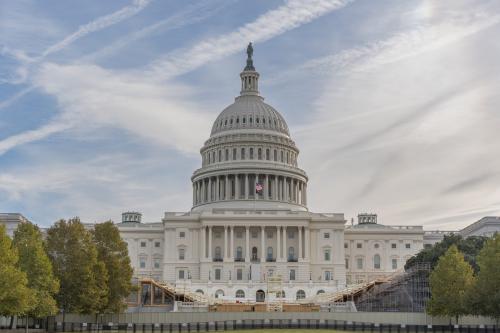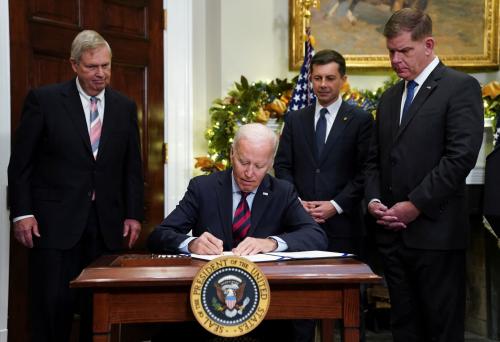Editor’s Note: In a letter to the editors of the Wall Street Journal, William Gale responds to critics of the Tax Policy Center report he recently co-authored. Gale emphasizes the Center’s history of nonpartisan analysis and the difficult trade-offs in tax reform, particularly in a plan that combines revenue-neutrality with broad income tax cuts.
Your editorials “The Romney Hood Fairy Tale,” (Aug. 8) and “Mathematically Possible” (Aug. 14), contain several mischaracterizations of the Tax Policy Center and our recent analysis of Gov. Mitt Romney’s tax proposals.
The Tax Policy Center, a joint venture of the Urban Institute and the Brookings Institution, has a 10-year history of nonpartisan analysis. Our scholars include previous members of Republican and Democratic administrations. We have written extensively in favor of broad-based tax reform and responsible fiscal policy. We have worked with bipartisan commissions on tax and deficit solutions, including Bowles-Simpson and the Bipartisan Policy Center. We analyze the president’s budget every year, examined most of the GOP candidates’ tax plans this past year and analyzed both candidates’ tax proposals in the 2008 presidential campaign and this year’s.
Our recent paper examined the effects of doing what Gov. Romney has explicitly proposed to do: cut income tax rates by 20%, enhance incentives for saving and investment, eliminate the alternative minimum tax and estate tax, and maintain revenue neutrality. We found that meeting those goals would lead to lower taxes on families with income above $200,000. Maintaining revenue neutrality would consequently require net tax increases on other households. This was true even when the financing of the plan was done as progressively as possible, and allowing for economic growth effects. Our paper illustrates the difficult trade-offs in tax reform.
We invite your readers to judge our analysis for themselves, by looking at www.taxpolicycenter.org.
The Brookings Institution is committed to quality, independence, and impact.
We are supported by a diverse array of funders. In line with our values and policies, each Brookings publication represents the sole views of its author(s).



Commentary
Op-edIs the Mathematically Possible Politically Desirable?
August 20, 2012